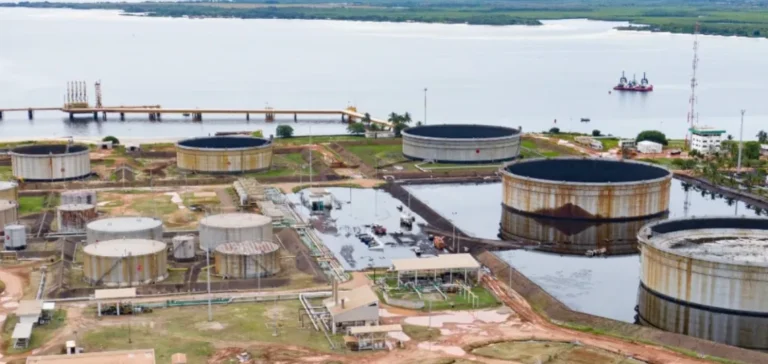Gabon is undertaking a structural transformation of its economic model to reduce its historical reliance on oil, which still accounts for between 23% and 24.2% of gross domestic product, according to the latest official data. With a projected 3% drop in production by 2026, authorities are multiplying regulatory and budgetary measures to accelerate diversification.
Infrastructure and evolving regulatory framework
The building and public works (BTP) sector is central to this strategy. It recorded 48% growth in 2024 and could reach 78% in 2026, supported by a series of reforms facilitating access to public procurement and the planning of major projects. The government has launched a modernisation of tender procedures and a revision of the procurement code to streamline project execution.
Priority programmes include the Émeraude City and the renovation of the railway network. These projects aim to improve the logistics of transporting raw materials such as timber and manganese, while contributing to the country’s territorial structuring. The stated goal is to support the economic appeal of productive zones through legally framed investments.
Gas industry and energy tax reform
A major lever of this transformation is the construction of a liquefied natural gas (LNG) plant in Port-Gentil, scheduled for 2026. This FCFA560bn ($896mn) investment, led by Perenco and Gabon Oil Company (GOC), is part of a broader reform of the gas sector’s fiscal and contractual framework, including a review of production-sharing agreements.
The Ministry of Petroleum has announced a series of regulations covering licensing, revenue distribution and sector oversight. This approach aims to secure better returns for the State while reinforcing legal certainty for private actors operating in the country.
Agro-industry, macroeconomic stability and governance
Reforms extend beyond energy. In agriculture and fisheries, the government forecasts 5.9% growth in 2026, supported by initiatives from the Strategic Agricultural Fund (FSA) and tax relief granted to rural cooperatives. Reviving palm oil production is one of the cornerstones of this regulated recovery.
On the macroeconomic front, Gabon maintained inflation at 1.2% in 2024 and a public debt equivalent to 56.3% of GDP, consistent with the convergence criteria of the Central African Economic and Monetary Community (Cemac). However, payment delays and a rigid public wage bill continue to restrict budgetary flexibility.
The Directorate General for Economy and Fiscal Policy estimates that non-oil growth could generate a more inclusive dynamic. This ambition nevertheless depends on the country’s ability to strengthen its institutions, improve regulatory transparency and ensure the sustainability of reforms launched in key sectors.






















